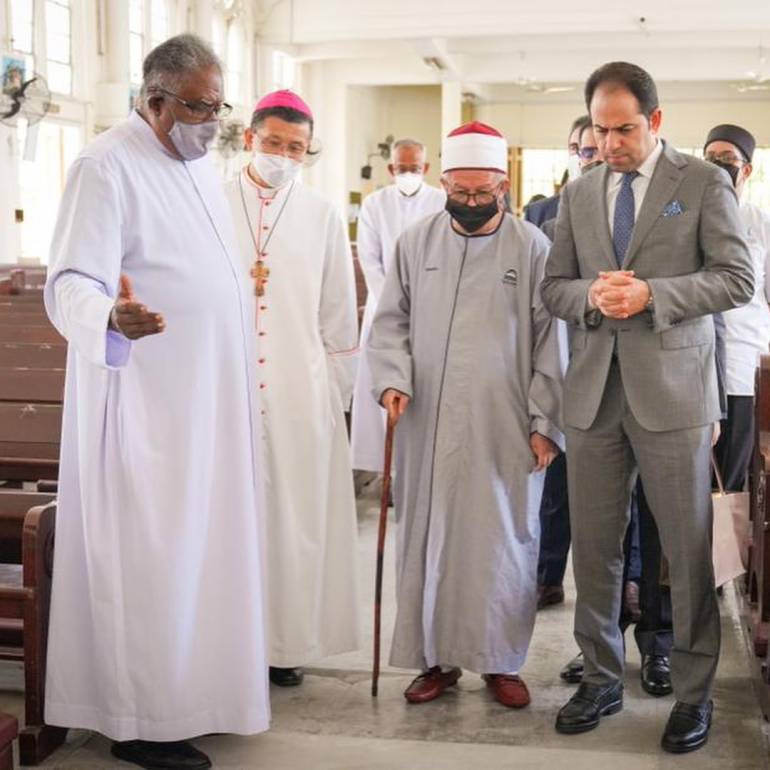Islamic scholar in Malaysia echoes to promote inter-religious dialogue

A senior scholar from an Islamic university in Malaysia reiterated promoting inter-religious dialogues in the country.
Dr Zulkifli Mohamad al-Bakri, the chairman of University Sains Islam Malaysia (USIM) kept his promise of six years as he paid a visit to the St. John’s Cathedral recently in conjunction with the visit of His Excellency Mohamed Abdelsalam as the Secretary General of the Hukama 'Muslimin Council and Senior Representative of Syeikhul Azhar.
USIM, an emerging Islamic university, is fully owned and funded by the Malaysian Government. Being the 12th public institution of higher learning, it aims to spearhead knowledge and be the global reference center for Islamic Science.
In his social media posting of the visit, Mohamad al-Bakri emphasized that efforts of inter-religious understanding must be continued through dialogues and scriptural studies as practiced by Islamic scholars.
“We are Malaysians, and we manage these differences and diversity the Malaysian way,” said Zulkifli Mohamad al-Bakri.
Malaysian Muslims and non-Muslims alike hold him in high esteem for his academic achievement and inclusive approach to society, especially toward minority religions in the country.
He also thanked Archbishop Julian Leow Beng Kim of Kuala Lumpur and all the priests and staff of the cathedral, who welcomed him that day.
With a population of 32.7 million, Malaysia is a Muslim-majority country founded on secular principles, even though it has undergone a gradual process of Islamization in 55 years of independence.
Christianity in Malaysia is a minority religion practiced by 9.2% of the population (2010 census).
Two-thirds of the 2.6 million Christians live in eastern Malaysia, composed of the provinces of Sabah and Sarawak (on the large island of Borneo), where they make up 30% of the population.
Radio Veritas Asia (RVA), a media platform of the Catholic Church, aims to share Christ. RVA started in 1969 as a continental Catholic radio station to serve Asian countries in their respective local language, thus earning the tag “the Voice of Asian Christianity.” Responding to the emerging context, RVA embraced media platforms to connect with the global Asian audience via its 21 language websites and various social media platforms.














